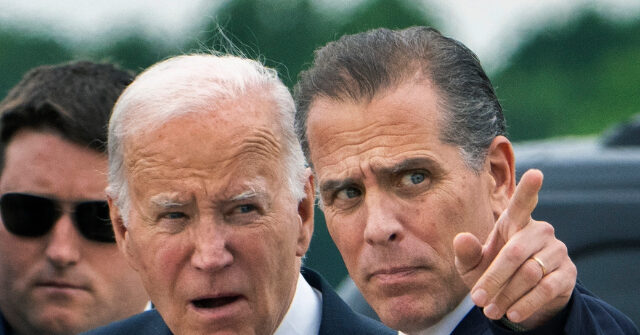In a controversial turn of events, President Joe Biden issued a pardon for his son, Hunter Biden, on December 1, 2024, raising significant questions regarding the honesty and transparency of communications from the White House over the years. The administration’s repeated denials about the possibility of such a pardon culminated in a stark contradiction between public statements and the eventual decision made by President Biden. Just weeks prior to the pardon, during the post-election period on November 7, White House Press Secretary Karine Jean-Pierre firmly stated that there was no intention for the President to pardon his son. This flat denial echoed Biden’s own earlier assertions and created a sense of mistrust regarding the administration’s commitment to telling the truth to the American public.
The timeline leading up to the pardon reveals a series of statements that many consider misleading. In June 2024, President Biden told ABC News anchor David Muir that he had “ruled out” any possibility of pardoning Hunter. The context of Hunter Biden’s legal issues—stemming from convictions on gun charges and a guilty plea for tax evasion—illustrated the gravity of the situation. Critics pointed out that Hunter Biden had also evaded prosecution for failing to register as a foreign agent; implicating his father in possible influence-peddling schemes that could overlap with Biden’s tenure as Vice President. This surrounding context added complexity to the narrative, suggesting that such a pardon could have larger ramifications for the Biden administration and its integrity.
Throughout the months leading up to the pardon, Jean-Pierre had consistently reinforced that there was no intention of a pardon, emphasizing the administration’s commitment to transparency. Her responses to reporters were unequivocal, leaving little room for interpretive ambiguity. The repetitive nature of these denials fostered a narrative of certainty regarding the President’s stance on the matter. Further complicating the situation is the timing of Biden’s pardon, occurring during a politically sensitive lame-duck period right after the elections. This decision raised troubling questions for critics and supporters alike, challenging the public’s trust in the administration and deepening suspicions about the authenticity of past statements.
In Biden’s own words upon issuing the pardon, he claimed, “For my entire career I have followed a simple principle: just tell the American people the truth.” However, the actions leading up to this statement starkly contradicted that principle and painted a picture of an administration struggling to maintain credibility. The gap between Biden’s assertions and the ultimate pardon of Hunter Biden reveals complications not just in legal terms, but in the public’s perception of honesty and openness from their leaders. Critics argue that the administration’s previous statements crafted a misleading narrative that jeopardized this fundamental tenet of public trust in governance.
Joel B. Pollak, Senior Editor-at-Large at Breitbart News, highlighted this discrepancy, noting that the public’s reaction to the pardon would likely center around feelings of betrayal and skepticism towards the administration’s transparency. As Pollak noted, the frequency of denials from the White House only compounded the perceived dishonesty surrounding the issue. This situation exemplifies how political maneuvering can remain entwined with familial fidelity, leading to a scenario where the integrity of the act itself – a pardon – becomes overshadowed by the means of conveying it.
In conclusion, the Hunter Biden pardon serves as a significant case study in contemporary politics, illustrating the complex interplay between family loyalty, legal consequences, and public trust. As the Biden administration continues to navigate challenges of credibility, the implications of this decision will likely resonate beyond the immediate context. It reiterates that the ramifications of political decisions extend into public perception, reinforcing the necessity for unwavering honesty in leadership. As the administration moves forward, it will undoubtedly face a more scrutinized lens through which every statement and action will be perceived in light of this recent event.

